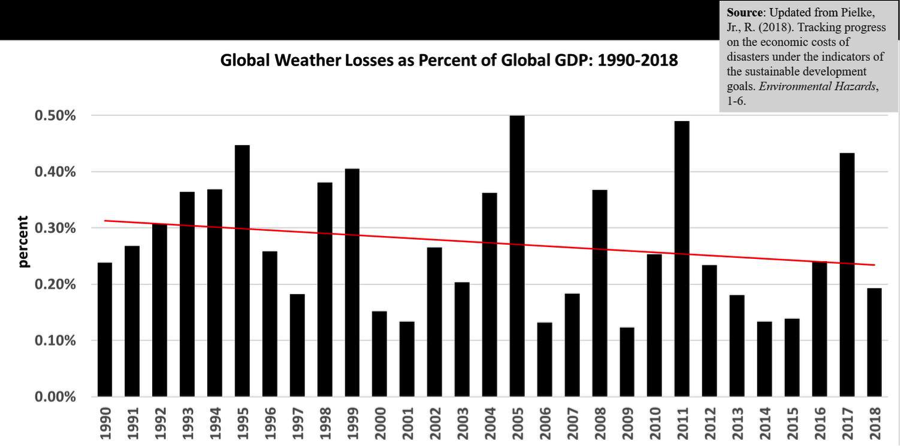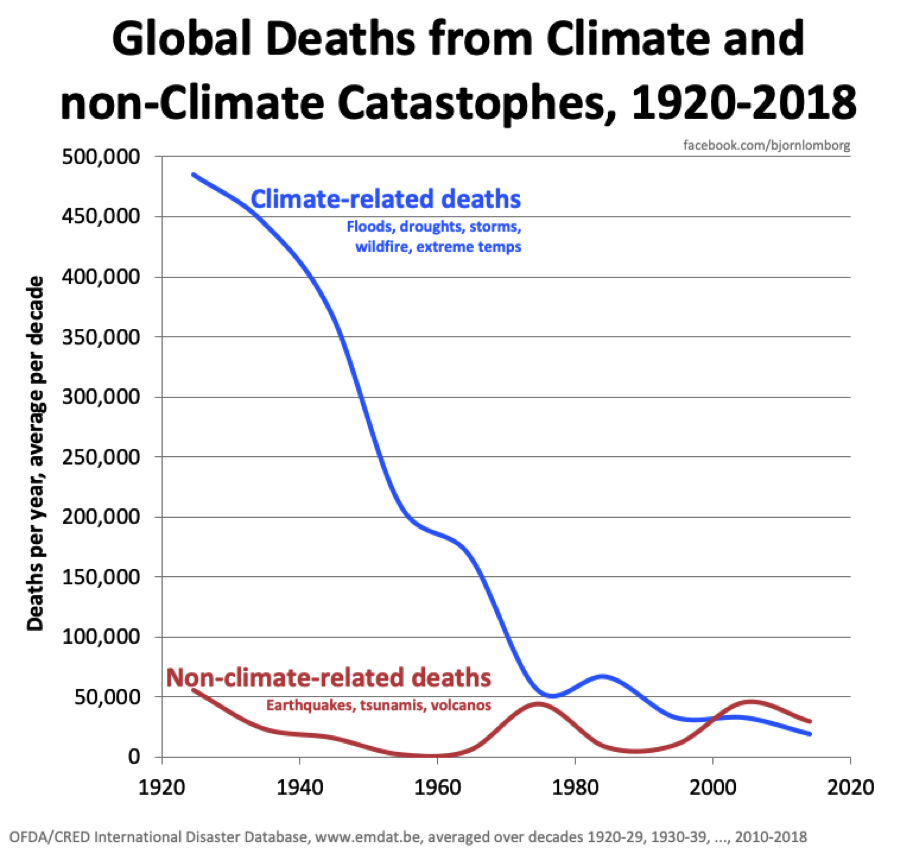Americans are blessed to live in a democratic republic. Individuals and organizations that seek to effect political change must garner votes by making their cases to elected officials or the people themselves. But radical environmentalists have discovered that when votes on legislative proposals and referenda do not turn out in their favor, there is a backdoor to political power. Litigation is indispensable for resolving disputes, compensating injured parties, and keeping watch over government actions. Yet for decades this tool has been abused by climate activists seeking to shut down all energy development and transportation by suing each individual project. In a more recent development, the green left has embarked on a reckless crusade to enact sweeping societal changes through court order in a coordinated campaign called atmospheric trust litigation.
Astroturf for the Earth
In 2012, a coalition of Rockefeller Foundation-supported environmental groups attended a not-to-be-publicized conference in La Jolla, California. They discussed the failure of “conventional approaches,” such as cap-and-trade legislation, and charted a new strategy: atmospheric trust litigation (ATL). The brainchild of University of Oregon law professor Mary Wood, ATL centers on using lawsuits by children to argue that improper care for public trust and commons is a violation of constitutional rights. At the center of ATL is youth suing the federal government, supported by the “broader ATL approach,” a legal and media campaign through all available channels. Some of the ways they go about this campaign include starting climate change suits against state governments; supporting climate suits in other countries; encouraging state attorneys general to issue subpoenas against oil companies (the basis of the #ExxonKnew lawsuits); lawsuits against oil companies for natural resource damages caused by climate change and initiating a press strategy comprising world-wide youth climate marches and documentaries about the lawsuits’ youth plaintiffs.
Though the ATL lawsuits are misguided and unsound (as will be discussed later), we should take this well-funded, multi-pronged operation very seriously. For one thing, they have at least been more successful than previous attempts. The leader of the lawsuits against the U.S. state and federal governments is Our Children’s Trust, a law firm founded by Julia Olson after attending a talk by Mary Wood in 2010. In 2011 it filed legal actions in all 50 states as well as one against the federal government. The federal lawsuit and nearly all of the state lawsuits were denied or dismissed, but they found a victory in Massachusetts—albeit one that relied on a state emissions statute rather than an inherent infringement on public trust.
In 2015, Our Children’s Trust filed another case against the federal government, Juliana v. United States. Though the plaintiffs hail from across the country, shrewd forum shopping led this case to Oregon, where a sympathetic U.S. District Court judge agreed to hear the unprecedented claim of a fundamental constitutional right to a healthy atmosphere. Still, while the judge surprised most legal experts by refusing to dismiss the lawsuit, she eventually submitted to pressure from both the U.S. Supreme Court and Ninth Circuit Court of Appeals and granted a potentially fatal pre-trial interlocutory appeal. For reference, at least 888 similar lawsuits have been filed against U.S. states and the federal government as of July of last year.
ATL’s greater danger is not judicial; given countless failures of similar suits, even the Rockefeller Foundation likely discounted its prospects of a big victory. But as a fawning 60 Minutes segment shows, children suing the government inspire natural fascination. When paired with the orchestrated children’s climate marches and the big green-funded young adult protests in the Capitol, it appears as if the next generation has chosen climate change as their major cause and is suddenly ready to fight for it. Never mind the extensive histories of radical environmental activism of the parents of some of these climate kids, including the eponymous Juliana—how could you question the politics or motivations of children? For trying to have the imaginative constitutional claims in Juliana dismissed, the media accused the federal government of trying to silence 21 kids. When Juliana does inevitably lose, the plaintiffs will simply be martyrs to those who naively hoped that this attempt to hijack the political process would result in the courts “saving” the climate.
A Green New Hope
The plaintiffs in Juliana v. United States argue that access to a healthy environment is a fundamental right. By failing to eliminate the use of conventional fuels, not just for its own institutions but also for the whole nation, the United States federal government has, the plaintiffs argue, violated the public trust and thus their rights under the 5th and 9th amendments. According to Columbia Law School Climate’s Jessica Wentz and Michael Burger, the plaintiffs’ case hinges on two factual issues: (1) the extent to which the U.S. government can be deemed responsible for greenhouse gas emissions that are causing anthropogenic climate change, and (2) the extent to which anthropogenic climate change is responsible for the specific injuries or harms suffered by the individual plaintiffs.
These issues reveal difficulties with the plaintiffs’ simplified narrative. Though environmental activists often portray greenhouse gas emissions as a crime against the earth committed by government-supported corporations, in reality, every human on Earth takes part in carbon-emitting activities. We emit CO2 to produce our electricity, heating, manufacturing, and transportation, a fact that has not been altered by renewables mandates or driving electric cars. This is not to say that we cannot try to estimate the sizes of different contributions, however; one expert in the case attributed to the U.S. government 4 percent of global emissions, while another expert found that even under the plaintiffs’ models the government’s share would be no more than 5 percent. The experts also note that the United States as a whole, which includes actors over whom the federal government has limited if any control, contributes a declining share of global emissions that (currently between 12 and 16 percent). If the U.S. were to somehow unilaterally eliminate all use and production of oil, coal and natural gas tomorrow, it would not stabilize the level of atmospheric CO2 concentration, let alone stabilize it at the plaintiffs’ demand of no more than 350 ppm CO2 by 2100.
Attributing anthropogenic climate change is just as difficult. The plaintiffs all have unique claims about how they have been and/or will be harmed by climate change. Many of them live in areas that are certainly susceptible to environmental damage, but how much of that is due to global climate change and how much is from simply living in flood-prone southern Louisiana or on an ephemeral barrier island? There are too many variables to link any specific extreme weather events to climate change, let alone to assert that anthropogenic warming will always make bad events worse. The most recent report by the U.N. Intergovernmental Panel on Climate Change (IPCC AR5) found low confidence that the frequency or severity of droughts, floods or tropical cyclones would increase long-term (and in fact cyclone frequency is more likely to decrease). In the short term, regional weather variation and cyclical events like El Niño are the dominant causes. Meanwhile, the economic costs of natural disasters as a percentage of GDP has declined and climate-related deaths have plummeted over the last century.


It is clear that the relationship between the U.S. government’s actions and climate change is far more complicated than the Our Children’s Trust narrative. The federal government does use carbon fuels for things such as building highways and keeping the lights on at VA hospitals, and it does issue permits for companies to extract gas to heat your home next winter, but this can hardly be surprising when oil, coal, and natural gas make up 78 percent of our energy consumption. Yet despite making up far less of the energy market, nuclear, hydroelectric, wind, solar, and biofuels received over 14 times more federal subsidies in 2016. About half of all federal subsidies go to wind and solar power, which accounts for just 3 percent of national energy consumption.
Solving complicated global challenges is not the job of the judicial branch. In order to be justiciable—resolvable by a court—an issue must not be attempting to answer a political question but rather a matter of law. When the government oversteps its authority or violates the people’s rights, courts can and must prevent it. It is the job of our elected officials and the democratic process, not the courts, to weigh the costs and benefits of things such as energy regulations, subsidies, and taxes.
That being said, solutions do not need to come from the federal government, or from any government at all. Previous environmental concerns have been solved by private markets using human ingenuity rather than, and sometimes in spite of, government intervention. The solutions have not been the ones that were obvious to the doomsayers—we avoided “peak oil” not by consuming less oil but by finding new ways to get more, and instead of curbing “overpopulation” we improved farming yields and have grown in both population and resources. Unlike central planning, the free market can incorporate new ideas as they arrive and evaluate technologies as disparate and experimental as direct air carbon capture, wave energy converters and osmotic power plants.
For those still wondering if Juliana involves a political question, the proof is in the demanded remedy. The plaintiffs seek to force the federal government to “prepare a consumption-based inventory of U.S. CO2 emissions” and to “prepare and implement an enforceable national remedial plan to phase out fossil fuel emissions.” They are requiring their own desired solution when so many other courses of action may better address their concerns. Personally, I have pretty low confidence in Our Children’s Trust to impose the perfect climate plan for the rest of the nation. William Nordhaus, who received the Nobel Prize in Economics for his work on the economics of climate change, reminded us that sacrificing too much to cut carbon emissions would cost as much as climate change itself. And his estimate for the optimal warming target was higher than many of those who pay his work lip service.
In the end, atmospheric trust litigation appears to simply be a better-organized version of countless attempts to seize power through judicial means when it could not be obtained politically. A potent example of this is the recently dismissed Lindsay v. Republican National Committee, a case in which plaintiff Stacy Lindsay sued over 120 Republican politicians and right-leaning organizations for, among other things, failing to act on global warming. As for relief, well, it is a silly but also unsettling case study into the potential danger of allowing courts to supplant our political system:
“Lindsay’s requests for relief are similarly ambitious: (1) dismantling of the Republican National Committee, Republican Congressional Committee and National Republican Senatorial Committee; (2) removal of President Trump, his cabinet and all Republican senators; (3) declaration of Hillary Clinton as president; (4) declaring conservative groups as enemies of the United States; (5) restructuring of the voting system; (6) affirming Merrick Garland as Supreme Court Justice; and (7) investigation of Christian tax-exempt organizations.”
Conclusion
Every day our courts of law provide the vital service of examining serious claims of rights violations. When groups such as Our Children’s Trust invent novel constitutional protections in an attempt to appropriate the judiciary for their desired political ends, it is more than a simple waste of court resources. The people are disempowered when political change is accomplished by shopping lawsuits around the nation until a judge agrees to impose the agenda. Respect the courts; keep politics to the political process.



